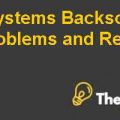
Fiji versus FIJI: Negotiating Over Water
Introduction:
Fiji Water is a water bottled company based in the United States, which was founded by David Gilmour in 1993. The main source of water for Fiji water is Fiji Islands. The water bottle is sourced from this artesian region of the Fiji Island. The company has done packaging, shipping and selling to other distributors all over the world in a variety of sizes.
The company is operated in more than 11 countries with more than 500 employees. Its operations have become critical for the development of the economy. In addition to that, the company is known for paying the highest manufacturing jobs in the country. Further, the company has made itself committed towards excellence and quality in terms of its people, products, profitability and strategic partners.
Current situation:
Fijian government had announced a plan to increase the tax on water extraction from 0.33 Fijian cents to 15 Fijian cents that was a 45 fold increase. The tax increase would only apply to companies extracting at least 3.5 million liters (925,000 gallons) per month, which meant it applied only to FIJI Water; as it was the only bottler whose volume exceeded this threshold. Negotiations took place between the government and the company on the natural resources in the country. As Fiji was the only large company which was affected by the revised tax rate; thus, their competitors who were not as prominent as Fiji were exempted from this tax increase. Fiji Water responded to this situation by publically referring to the tax as discriminatory and announced an immediate close of its bottling operations. After all the protest, the company still agreed on paying the increased tax to the government.
Issues:
The issues confronting between the Fiji Company and the Fijian government was a negotiation over inadequate reserves. Further issues were related to the element of ethics in multi-faceted negotiation situations, maintenance and sustaining a long-term relationship between both the parties and the community. The Fijian government and Fiji Company needs to find measures to reach the point where resolution of conflict could take place.
Critical analysis:
Fiji Water’s relationship with the government and other communities:
Second to sugar, FIJI Water turned into the second biggest export to originate from Fiji. There turned into a "stand-off" between the regulatory body and FIJI Water over taxes. Preceding 2007, FIJI Water had been granted tax-free status. In 2008, the Fijian Government had understood the income that could be made by actualizing 20-pennies for every liter charge. Nonetheless, it stressed the legislature that it might yet a brake on the development of the packaged water industry and lessen the earnings of exports by Fiji Water. In 2009, they made "water resource tax" that meant FIJI Water would pay 11 pennies for every liter. Because of the sum that FIJI Water would be losing by paying this expense; the Fiji Government was suspicious that the FIJI Water had started transfer pricing. This would be significant as they were delivery it to their central station in Los Angeles with ease to control the measure of duties that they would be paying.
Position of Both Parties:
In the negotiation between Fijian Government and Fiji Company, the one that has got a stronger position is the Fijian Government for sure. If the company is not strong enough to operate in Fiji, then the government of Fiji will ask for global tenders all over the world from alleged multinational companies that will pay the taxes for the extraction of water from the valleys stipulated by the Fijian Government. The government has made some council meetings as well with New Zealand and Australia to endow in the economy of Fiji.
In order to make an influence of power by both the parties, following things can be done in order to make negotiation productive.
Fiji Water Company:
Fiji Water can defend itself by stating that the company is involved in various welfare related activities for the society. The company has made various action regarding social corporate responsibility activities that included: employment, initiatives related to environment and Fiji Water Foundation. The company has provided employment opportunity to nearly 500 people and the closing of the plant will make all these workers unemployed. Further, the company claimed to be the highest salary payer in the country.
In addition to that, the company has taken several environmental initiatives for a sustainable environment. The plant was ISO 14001 certified that meant the company had promised to reduce the waste generating from the production of the facility. Furthermore, another initiative taken by the company was a “Carbon Negative” plan that would be achieved by decreasing its footprints of carbon from the economy. Additionally, the company is engaged in supporting and providing a variety of healthcare programs along with quality education with the help of its foundation in Fiji...............................
This is just a sample partial case solution. Please place the order on the website to order your own originally done case solution.
This case negotiations between the company and the government over natural resources. Fijian government proposed a significant increase in its tax on the extraction of water, which would only apply to large extractors, and thus of Fiji water, not its competitors. FIJI Water responded by phone to increase "discriminatory" and threatened to close down their operations, but in the end the negotiations led to her agreeing to pay higher taxes. "Hide
by Francesca Gino, Michael W. Toffel, Stephanie van SICE Source: Harvard Business School 18 pages. Publication Date: Mar 08, 2012. Prod. #: 912030-PDF-ENG













